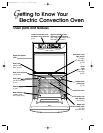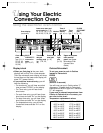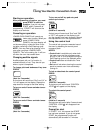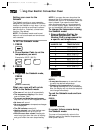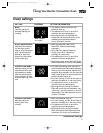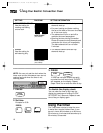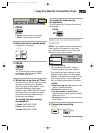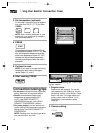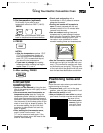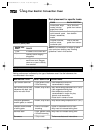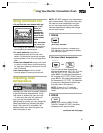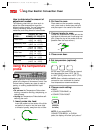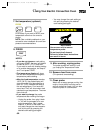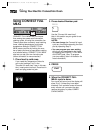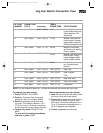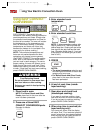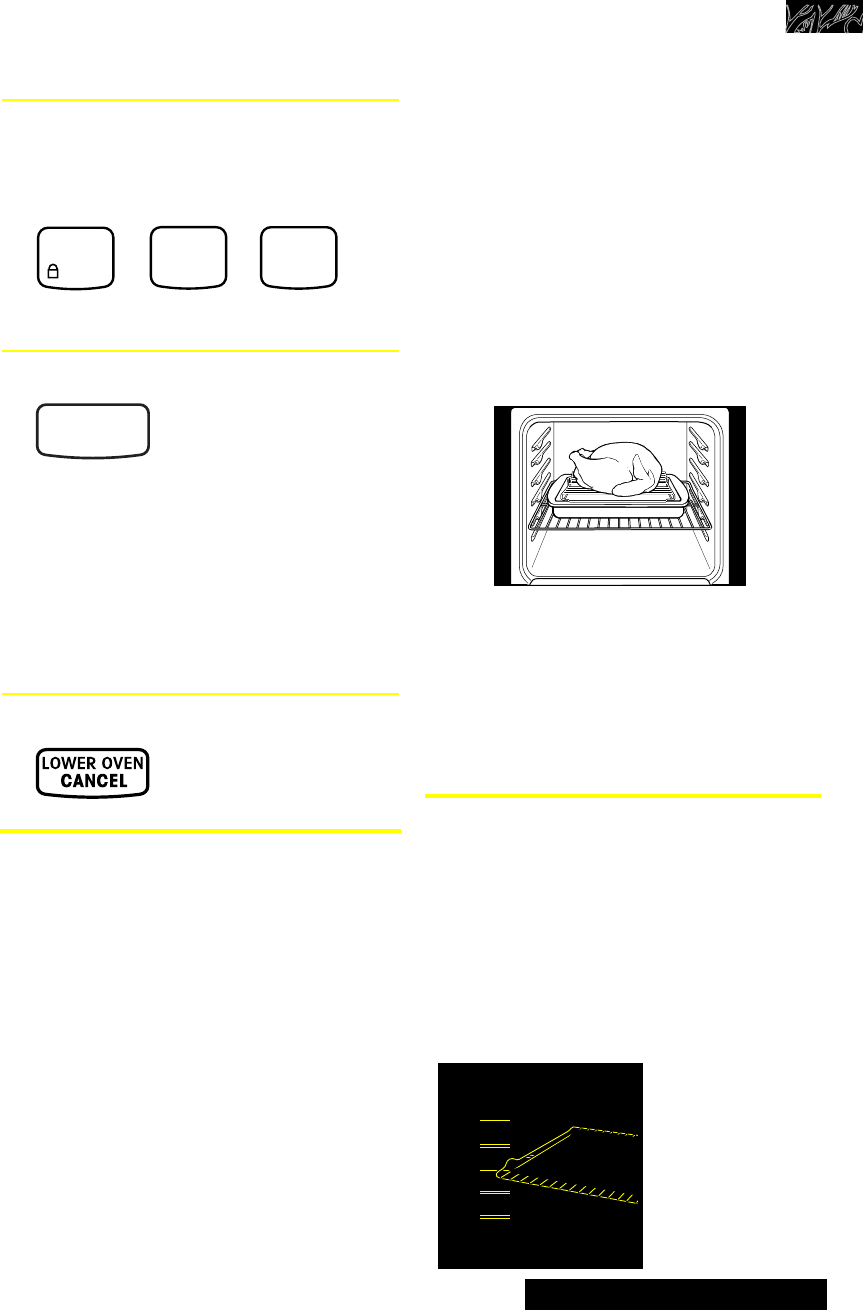
• Check pork and poultry with a
thermometer in 2 to 3 places to ensure
adequate doneness.
• Poultry and roasts will be easier to
carve if loosely covered with foil and
allowed to stand 10 to 15 minutes after
removal from the oven.
• You can reduce roasting times and
temperatures for most standard recipes
when using the Convection Roast setting.
See convection roasting chart in your
convection oven cookbook for recom-
mended roasting times and temperatures.
• Use the convection roasting rack on the
broiler pan and grid (all included with your
oven). (The convection roasting rack rests
on the broiler pan and grid.) The long side
of the rack should be parallel with the oven
door for best heat distribution and airflow.
Using Your Electric Convection Oven
Positioning racks and
pans
Place the oven racks where you need them
before turning on the oven.
• To move a rack, pull it out to the stop
position, raise the front edge and lift it out.
• Be sure the rack(s) is level.
• Use pot holders or oven mitts to protect
your hands if rack(s) must be moved while
the oven is hot.
• For best perfor-
mance, cook on
one rack. Place
the rack so the
3. Set temperature (optional).
Do this step if you want to set a
temperature other than 300°F (149°C).
NOTE: See your convection oven cook-
book for temperature recommendations.
4. PRESS
NOTES:
• After the temperature reaches 170°F
(77°C), the temperature display will
show the actual oven temperature at
each 5°F (3°C) increase and stop at
just about the set temperature.
• If you want to change the roasting
temperature after roasting has begun,
repeat Steps 2, 3, and 4.
5. After cooking, PRESS
3
CONTROL
LOCK
2
5
START
Convection
roasting tips
• Spatter can be reduced by lining the bot-
tom of the roasting pan with lightly crushed
aluminum foil.
• Use an accurate meat thermometer or
temperature probe (see the “Using the
temperature probe” section) to determine
when meat has reached desired degree of
doneness. Insert the thermometer or probe
into the center of the thickest portion of the
meat or inner thigh or breast of poultry. For
an accurate reading, the tip of the ther-
mometer or probe should not touch fat,
bone, or gristle.
• After reading the thermometer once,
push it further into the meat
1
⁄
2
inch
(1.7 cm) or more and read again. If the
temperature drops, return the meat to the
oven for more cooking.
continued on next page
13
PRESS
4452300Bv09c40 1/21/00 4:36 PM Page 13



